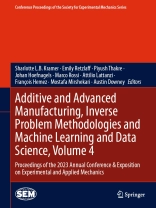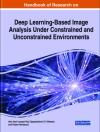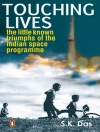Additive and Advanced Manufacturing, Inverse Problem Methodologies and Machine Learning and Data Science, Volume 4 of the Proceedings of the 2023 SEM Annual Conference & Exposition on Experimental and Applied Mechanics, the fourth volume of five from the Conference, brings together contributions to this important area of research and engineering. The collection presents early findings and case studies on a wide range of topics and includes papers in the following general technical research areas:
AM Composites and Polymers
Dynamic Behavior of Additively Manufactured Materials and Structures
Joint Residual Stress and Additive Manufacturing
ML for Material Model Identification
Novel AM Structures
Novel Processing and Testing of Additively Manufactured Materials
Plasticity and Complex Material Behavior
Virtual Fields Method
Inhoudsopgave
Chapter 1. Quantifying residual stresses generated by laser powder bed fusion of metallic samples.- Chapter 2. Loading-Unloading Compressive Response and Energy Dissipation of Liquid Crystal Elastomers and Their 3D Printed Lattice Structures at Low and Intermediate Strain Rates.- Chapter 3. Residual Stress Induced in Thin Plates During Additive Manufacturing.- Chapter 4. Investigating the Effects of Acetone Vapor Treatment and Post Drying Conditions on Tensile and Fatigue behavior of 3D Printed ABS Components.- Chapter 5. Mechanics of Novel Double-Rounded-V Hierarchical Auxetic Structure – Finite Element Analysis and Experiments Using Three-dimensional Digital Image Correlation.- Chapter 6. Repeatability of Residual Stress in Replicate Additively Manufactured 316L Stainless Steel Samples.- Chapter 7. Acoustic nondestructive characterization of metal pantographs for material and defect identification.- Chapter 8. Rapid prototyping of a micro-scale spectroscopic system by two-photondirect laser writing.- Chapter 9. Bioinspired Interfaces for Improved Interlaminar Shear Strength in 3D Printed Multi-Material Polymer Composites.- Chapter 10. Thermo-mechanical Characterization of High-strength Steel through Inverse Methods.- Chapter 11. A multi-testing approach for the full calibration of 3D anisotropic plasticity models via inverse methods.- Chapter 12. Finite Element Based Material Property Identification Utilizing Full-Field Deformation Measurements.- Chapter 13. Data-driven material models for engineering materials subjected to arbitrary loading paths: influence of the dimension of the dataset.- Chapter 14. Data-driven methodology to extract stress fields in materials subjected to dynamic loading.
Over de auteur
Sharlotte L.B. Kramer–Sandia National Laboratories, NM, USA; Emily Retzlaff–United States Naval Academy, MD, USA; Piyush Thakre–Dow Inc., TX, USA; Johan Hoefnagels–Eindhoven University of Technology, Netherlands; Marco Rossi–Università Politecnica delle Marche, Italy; Attilio Lattanzi–California Institute of Technology, CA, USA; François Hemez–Lawrence Livermore National Laboratory, CA, USA; Mostafa Mirshekari–Carnegie Mellon University, PA, USA; Austin Downey–University of South Carolina, SC, USA












